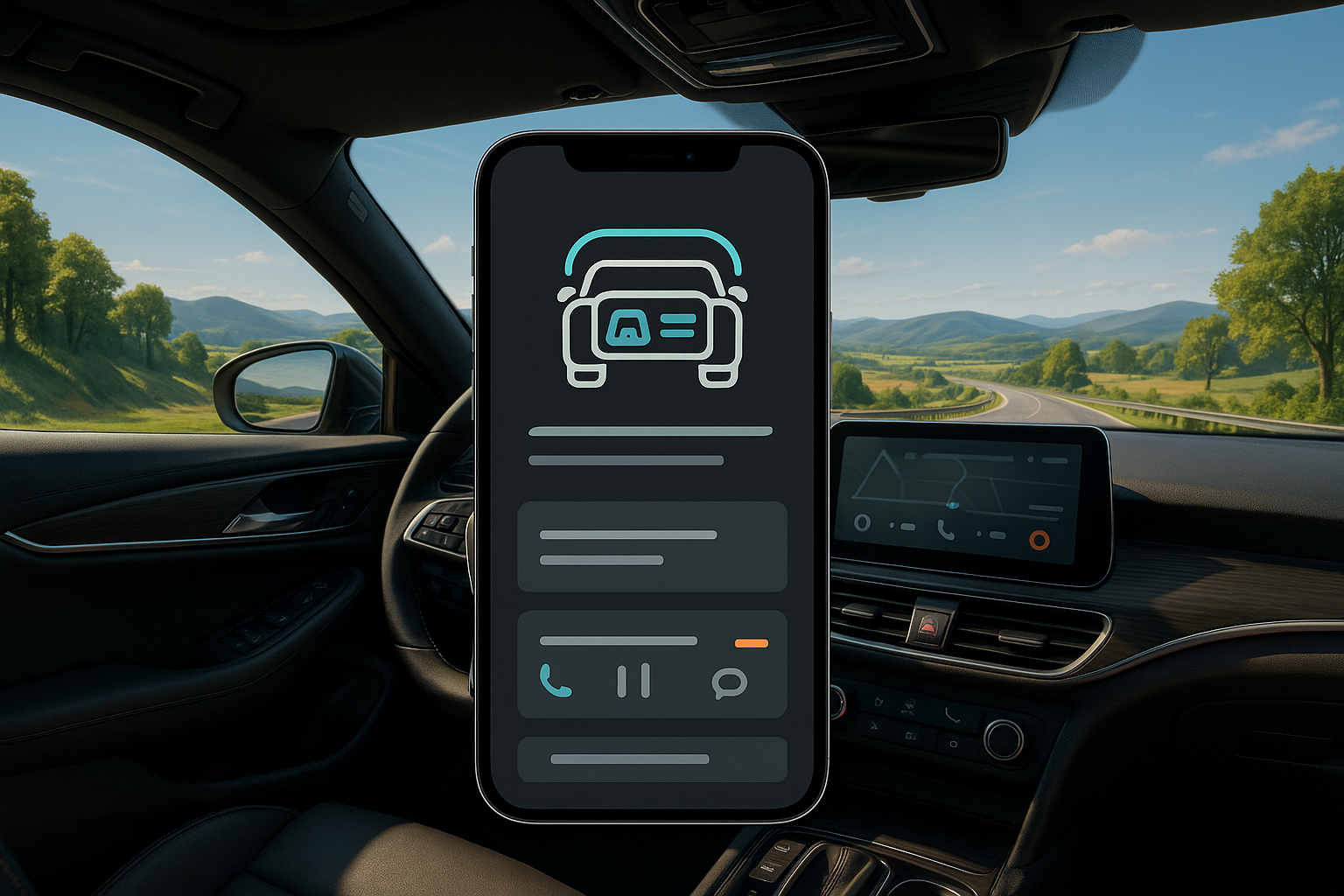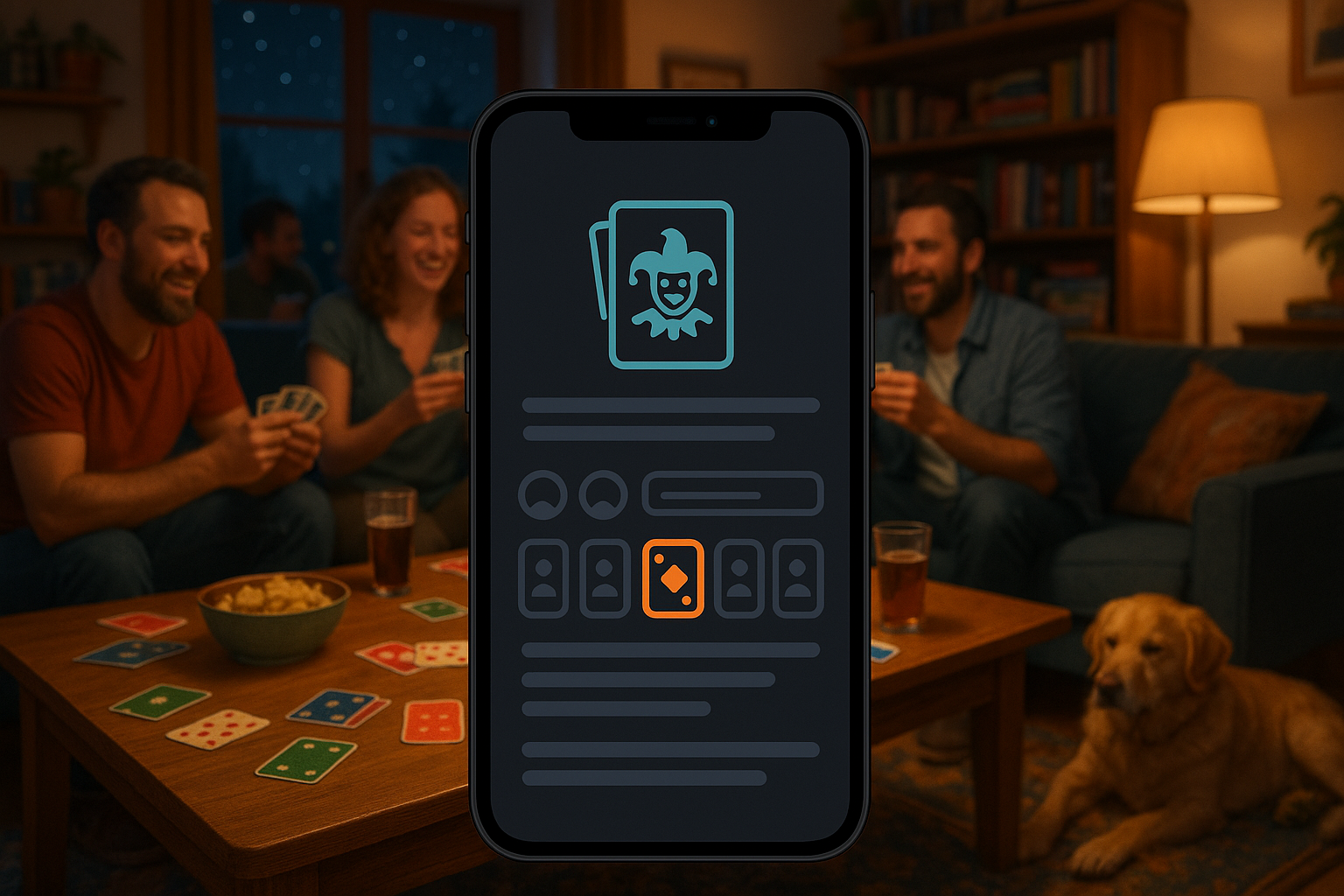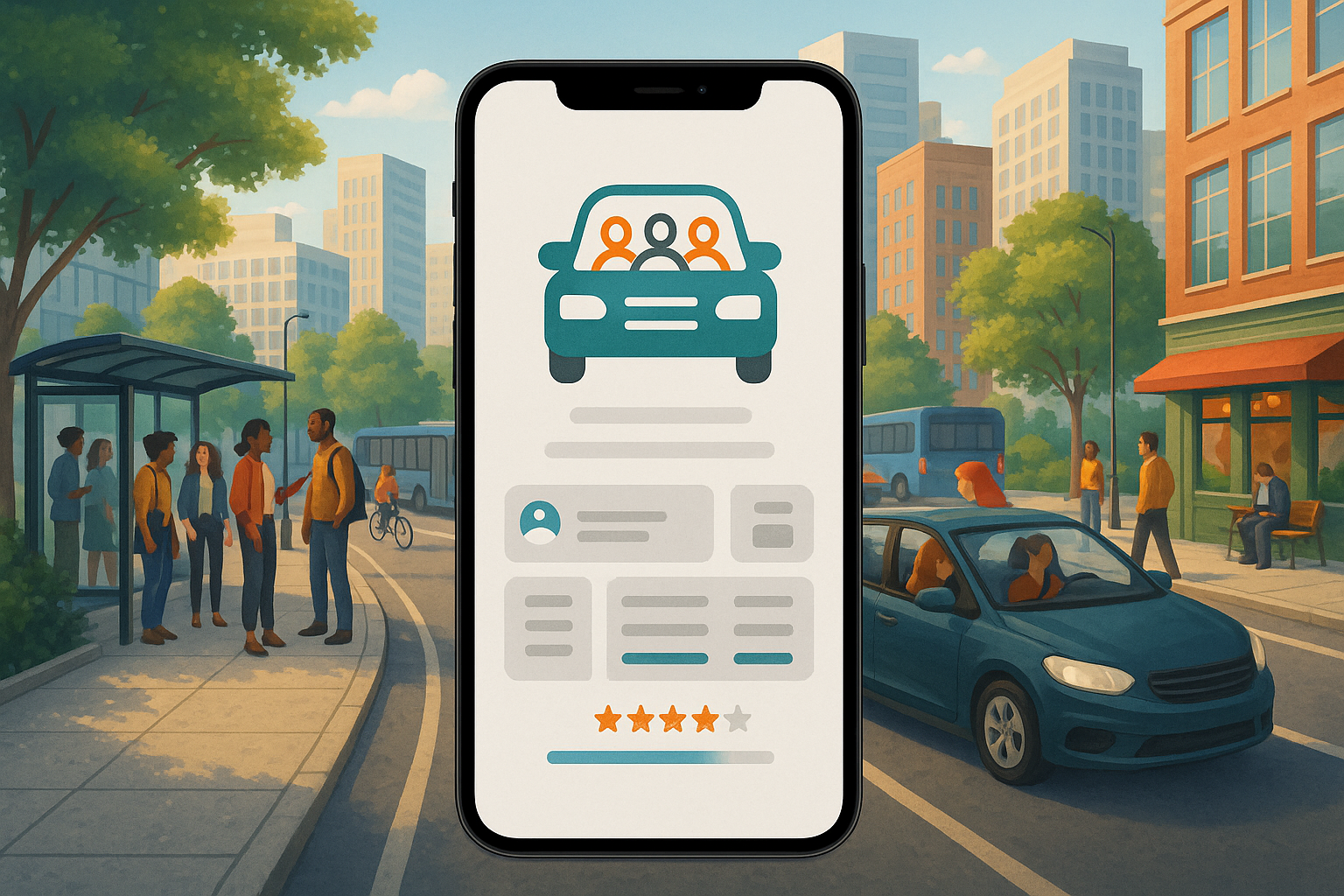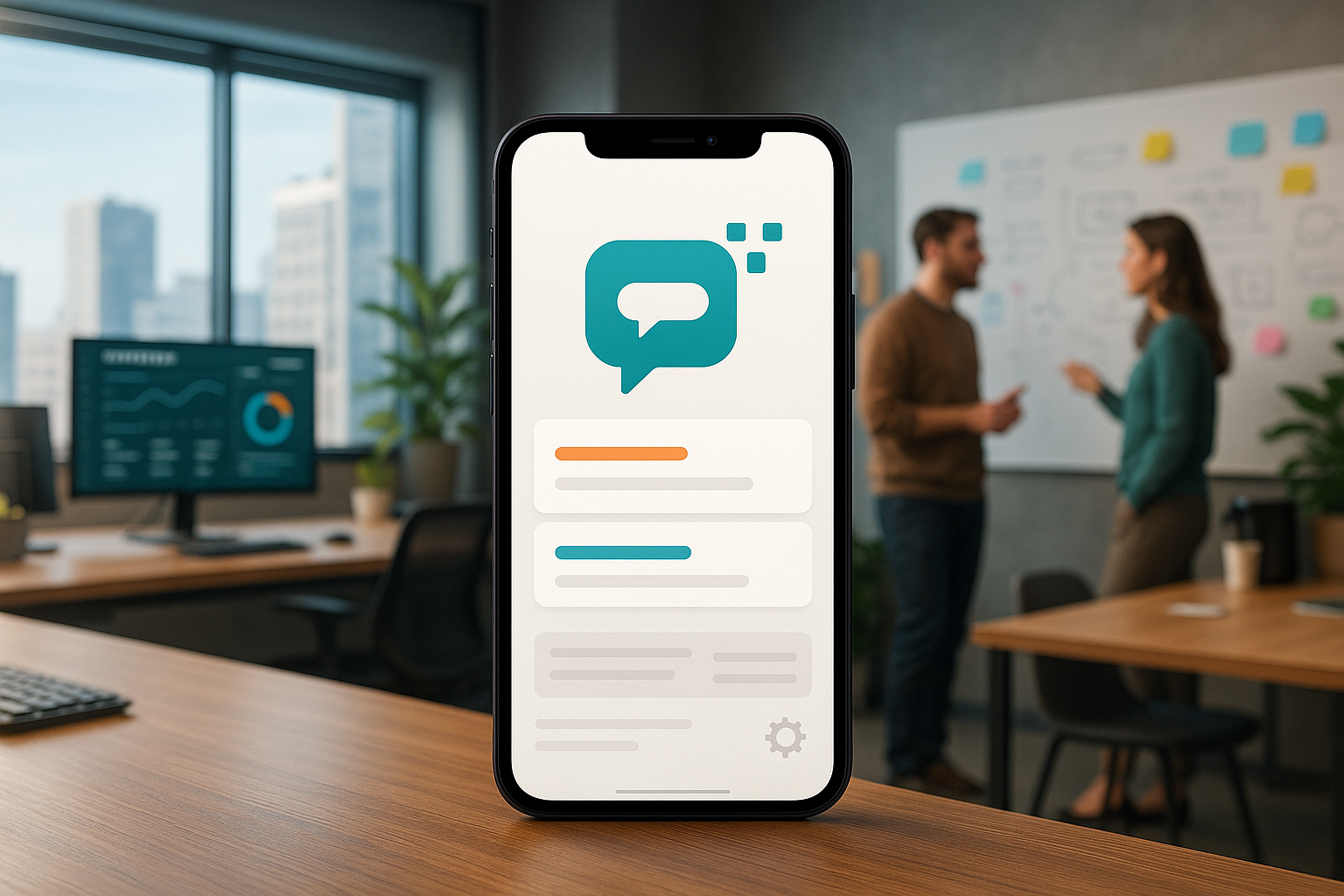Introduction
The integration of mobile applications into our daily lives has extended into our vehicles, with Apple CarPlay leading the charge in creating a safer, more convenient in-car experience. For developers and businesses, this presents a massive opportunity to reach users in a new context. However, tapping into this ecosystem is far from straightforward. The path to launching a successful CarPlay application is paved with stringent guidelines, technical complexities, and a unique set of design constraints that can overwhelm even seasoned development teams. The dream of seeing your app on a car’s dashboard can quickly become a frustrating roadblock without the right expertise and guidance.
This article serves as a comprehensive guide to the world of CarPlay app development. We will demystify the process, providing a clear-eyed view of what it takes to build and launch an app for Apple’s automotive interface. We will explore the fundamental question of what a CarPlay app is, delve into the significant reasons why developing one in-house is so difficult, and outline the specific categories of applications that Apple permits. Furthermore, we’ll address the perennial question of development costs and introduce the top companies equipped to handle this specialized work.
At MetaCTO, a premier US AI-powered app development firm with over 20 years of experience, we specialize in transforming complex ideas into market-ready mobile applications. We understand the unique challenges of ecosystems like CarPlay and have a proven track record of launching over 120 successful projects. This guide will not only provide you with essential information but also illustrate how partnering with an expert agency like ours can be the critical factor in navigating Apple’s rigorous development landscape, ensuring your app is not only approved but also delivers a seamless and valuable experience to drivers.
What is a CarPlay App?
At its core, Apple CarPlay is a smarter, safer way to use an iPhone in the car. It takes the things a user wants to do with their iPhone while driving and puts them right on the car’s built-in display. A CarPlay app, therefore, is not merely a mirrored version of an iPhone app. It is an application specifically designed and adapted to function within the CarPlay environment, adhering to Apple’s strict standards for driver safety and user experience. The primary goal is to minimize distraction while providing essential functionality.
CarPlay apps allow drivers to perform common tasks effortlessly. Users can get directions, send and receive messages, and play music or other audio content, all through a simplified interface designed for quick glances and minimal interaction. To achieve this, Apple developers enable their apps on the driver’s screen by supporting the CarPlay framework. This framework provides the structure, templates, and APIs necessary to create a compliant and functional in-car experience.
A key aspect of the modern CarPlay experience is its support for dynamic, at-a-glance information through widgets and Live Activities.
- Widgets: Appearing to the left of the CarPlay Dashboard, widgets display timely and relevant information from an app. For vehicles with touchscreens, these widgets are interactive, allowing for quick actions without needing to open the full application. This feature is a powerful way for apps to provide value passively.
- Live Activities: For apps that track the progress of an event or task, Live Activities are a game-changer. They can show the progress of an activity at a glance, and they are automatically displayed in the CarPlay Dashboard or can appear as a notification. This is ideal for food delivery tracking, sports score updates, or ride-sharing ETAs.
One of the most streamlined aspects for developers is that if an Apple app already includes a small widget or a Live Activity, it will automatically appear in CarPlay with no additional changes required. This provides an instant entry point into the CarPlay ecosystem for many existing applications. However, this convenience comes with a caveat. Developers must ensure their widget is genuinely functional and suitable for use in a car. If it isn’t, they must explicitly indicate that it’s not optimized for CarPlay to prevent it from being shown, a process detailed in the CarPlay Developer Guide. This self-policing mechanism underscores Apple’s unwavering focus on maintaining a safe and high-quality user experience.
Reasons That It Is Difficult to Develop a CarPlay App In-House
While the prospect of developing a CarPlay app is exciting, the practical reality is fraught with challenges that make it a uniquely difficult endeavor for in-house teams without prior specialized experience. Apple’s walled garden is notoriously high, and for CarPlay, the walls are reinforced with safety protocols and rigid design philosophies. Partnering with an experienced agency like MetaCTO, which specializes in custom mobile app development, can be the difference between a successful launch and a project stuck in development limbo.
Here are the primary reasons why in-house CarPlay development is so challenging:
1. Strict and Limited App Categories
Unlike the iOS App Store, where innovation is encouraged across countless categories, the CarPlay ecosystem is highly regulated. Apple permits only a handful of app types that it deems appropriate and safe for a driving environment. If your app doesn’t fit neatly into one of these supported categories, it simply will not be approved.
The approved categories include:
- Audio
- Messaging
- VoIP
- Navigation
- EV Charging
- Fueling
- Parking
- Quick Food Ordering
- Driving Task
- Automaker Apps
This limited scope means that a significant amount of upfront analysis is required to determine if an app concept is even viable for CarPlay. An in-house team might spend considerable resources developing a concept only to discover it falls outside Apple’s accepted use cases. At MetaCTO, our process begins with a validation phase, where we leverage our deep knowledge of Apple’s ecosystem to ensure your app idea aligns with CarPlay guidelines from day one, saving you time and investment.
2. Template-Driven and Restricted UI
Creative freedom is heavily curtailed in CarPlay development. Developers do not have the ability to design a custom user interface from scratch. Instead, they must use a series of predefined templates provided by Apple. The CarPlay Developer Guide provides exhaustive details about these templates, which are designed for consistency, legibility, and minimal driver distraction.
While these templates ensure a cohesive and safe user experience across all CarPlay apps, they present a significant challenge for developers accustomed to the flexibility of standard mobile app design. Working within these constraints requires a different mindset and a deep understanding of the CarPlay framework. The task is not to create a stunning, unique UI, but to map the app’s core functionality effectively onto Apple’s rigid structures. This often means making difficult decisions about which features to include and how to present them, a process that benefits immensely from the experience of a team that has navigated it before.
3. Rigorous UI and Interaction Optimization Guidelines
Beyond the templates, Apple provides extensive design guidelines on how to optimize an app’s UI and interactions for CarPlay. These guidelines are not mere suggestions; they are requirements for approval. The focus is on creating an experience that can be operated with quick, simple gestures and voice commands to keep the driver’s eyes and attention on the road.
This involves:
- Designing for Voice: Many CarPlay apps, particularly messaging and VoIP apps, must support SiriKit intents to be updated to appear in CarPlay. This requires robust integration with Apple’s voice assistant.
- Supporting In-Car Hardware: Navigation apps, for example, may need to support multitouch on certain displays and, more complexly, supply metadata for secondary screens like the instrument cluster or a head-up display (HUD). This integration with vehicle hardware is a specialized skill.
- Minimizing Cognitive Load: Every screen, button, and list must be designed for maximum clarity and minimum complexity. This requires a deep understanding of human-computer interaction principles within the specific context of driving.
Our team at MetaCTO is adept at creating user experiences that are not only intuitive but also compliant with the strictest platform guidelines. We design with a “driver-first” mentality, ensuring every interaction is safe, simple, and effective.
4. Complex Technical Requirements and Tooling
Getting started with CarPlay development involves more than just opening Xcode. Apple requires developers to download additional tools to access the CarPlay simulator and easily replicate a CarPlay environment from their Mac. The development workflow itself is more complex, demanding proficiency in specific frameworks and APIs.
For instance, navigation apps must provide turn-by-turn directions and show guidance in the instrument cluster. Audio apps might need to integrate features like displaying sports scores in their now playing screen. These features are not trivial to implement and require specialized knowledge of the CarPlay entitlements and frameworks.
5. The Entitlement Gauntlet
Perhaps the most significant hurdle is the entitlement process. Before a developer can even begin building in earnest, they must request a special CarPlay app entitlement from Apple. This involves submitting a proposal that convinces Apple their app not only fits into a supported category but also has the potential to be a high-quality, valuable addition to the CarPlay ecosystem.
Approval is not guaranteed. Apple carefully vets each request to protect the integrity and safety of its platform. This process can be opaque and frustrating for teams unfamiliar with Apple’s expectations. Having an experienced partner who has successfully navigated this process is invaluable. At MetaCTO, we assist our clients in preparing and submitting entitlement requests that clearly articulate the app’s value proposition and alignment with Apple’s vision for CarPlay. For complex projects, our Fractional CTO service can provide the strategic oversight needed to successfully pass this critical stage.
Different Types of CarPlay Apps
Apple has deliberately curated the CarPlay experience by limiting the types of applications that can run on the platform. This focus ensures that all available apps serve a clear purpose relevant to the driving context and adhere to the highest safety standards. Understanding these distinct categories is the first step for any developer or business considering entering the CarPlay market. Each category comes with its own set of templates, capabilities, and requirements.
Navigation Apps
This is one of the cornerstone categories of CarPlay. Navigation apps are given the most screen real estate and the richest set of features, as they are central to the driving experience.
- Core Functionality: At a minimum, these apps must provide clear, turn-by-turn directions.
- Advanced Integration: They can go far beyond the main screen. Navigation apps can show guidance prompts directly in the car’s instrument cluster or on a head-up display (HUD), providing directions in the driver’s natural line of sight. They can also supply metadata for these secondary screens.
- User Interaction: To make route planning and map exploration easier when parked, navigation apps are one of the few categories that can support multitouch gestures on the main display.
Audio Apps
Audio entertainment is another fundamental pillar of the in-car experience. This category is broad, encompassing various types of audio content.
- Content: Audio apps can play music, podcasts, audiobooks, news, and more. The interface is template-based, focusing on browse-and-play functionality.
- Unique Features: In a unique integration, audio apps have the ability to display sports scores directly within their “now playing” screen, allowing users to keep up with a game without changing apps or looking at their phone.
Messaging and VoIP Apps
Communication is key, but it’s also a primary source of distraction. Apple’s solution is to heavily mediate it through voice and simplified interfaces.
- SiriKit Integration: To be approved for CarPlay, both messaging and Voice over IP (VoIP) apps must support SiriKit intents. This is non-negotiable.
- Functionality: This integration allows users to send and receive messages and make calls almost entirely through voice commands. Siri reads incoming messages aloud and allows the driver to dictate a reply, ensuring a hands-free, eyes-free interaction model.
Driving Task Apps
This is a newer, umbrella category that groups together several types of utility apps designed to assist with tasks commonly performed before, during, or after a drive. These apps are designed for quick, transactional interactions. The supported sub-categories are:
- EV Charging: Helps electric vehicle owners find, use, and pay for charging stations.
- Fueling: Allows drivers to find nearby gas stations and, in some cases, pay for fuel directly from the car’s display.
- Parking: Helps drivers locate and pay for parking spots.
- Quick Food Ordering: Enables users to order food and drinks from restaurants for quick pickup, a feature designed to be used before starting a trip or by a passenger.
Automaker Apps
This is a special and powerful category reserved exclusively for car manufacturers. These apps bridge the gap between Apple’s ecosystem and the vehicle’s native hardware and software.
- Vehicle Control: Apps published by automakers can let drivers control core car features—such as climate control, radio, or seat adjustments—without ever leaving the CarPlay interface.
- CarPlay Ultra Extension: These apps can extend the capabilities of the next-generation CarPlay Ultra for features that are unique to their specific car models, offering a deeply integrated experience.
- EV-Specific Features: For electric vehicles, automaker apps can support EnergyKit, allowing people to optimize their vehicle’s electricity usage at home by coordinating charging with their home energy system.
Cost Estimate for Developing a CarPlay App
One of the most pressing questions for any business looking to venture into a new platform is, “How much will it cost?” When it comes to developing a custom Apple CarPlay application, the answer is complex. Providing a single, fixed price is not just difficult; it’s impossible without a detailed analysis of the project’s specific requirements.
The core reason for this ambiguity is that it is difficult to estimate in time how long it will take to develop an application from scratch since the number of functions and the complexity of the design directly affect this. The final cost is a direct product of the development time, and several key factors influence that timeline:
- Application Category and Feature Set: The complexity varies dramatically between app types. A simple podcast app that uses a standard audio template will require significantly less development time than a full-featured navigation app. A navigation app needs to handle mapping, routing algorithms, real-time traffic data, turn-by-turn voice guidance, and complex integrations with the car’s instrument cluster and head-up display. Each additional feature adds to the development hours.
- Backend Infrastructure: Does your app need to communicate with a server? Most do. Whether it’s to fetch podcast episodes, sync user accounts, process payments for a food order, or pull real-time charging station availability, a robust backend is required. The complexity of this backend—and the API that connects it to the CarPlay app—is a major cost driver.
- Third-Party Integrations: Your app may need to integrate with other services to provide its core functionality. A fueling app might integrate with a payment processor, while a navigation app could pull data from multiple mapping and traffic providers. Each integration adds a layer of complexity and requires dedicated development and testing time.
- Design Complexity within Templates: While CarPlay uses templates, there is still room for design decisions that affect complexity. Choosing how to structure navigation, how to display lists, and how to best represent your brand within Apple’s constraints requires careful design and prototyping work.
- SiriKit and Hardware Integration: As mentioned, building for voice with SiriKit or integrating with secondary vehicle displays is not a simple task. These advanced features require specialized expertise and significantly more development and testing effort than a basic, screen-only app.
Given these variables, any agency that provides a flat-rate cost for a “CarPlay app” without a thorough discovery process should be viewed with caution. The right approach is a collaborative one. At MetaCTO, we address this challenge head-on with our initial strategy and validation phases. Our Rapid MVP Development service is designed to de-risk your investment. We work with you to define the core, must-have features for a Minimum Viable Product, allowing you to launch an initial version of your app quickly and on a controlled budget. This process provides a clear product roadmap, which in turn allows for a much more accurate cost and timeline estimate for the full build and future iterations.
Top CarPlay App Development Companies
Choosing the right development partner is the single most important decision you will make when building a CarPlay app. You need a team with proven experience in the Apple ecosystem, a deep understanding of the CarPlay framework, and the strategic foresight to navigate the entitlement and review processes. Below are leading companies in this specialized field.
1. MetaCTO
As a top-tier, US-based mobile app development agency, we at MetaCTO are uniquely positioned to guide your CarPlay project from concept to launch and beyond. With over two decades of app development experience and a portfolio of over 120 successful projects, we provide the deep technical partnership required to succeed in a complex ecosystem like CarPlay. Our 5-star rating on Clutch is a testament to the success our clients have achieved.
What sets us apart is our holistic, AI-enabled approach to building, growing, and monetizing mobile apps. We understand that a successful app is more than just code.
- Expert Strategy and Validation: We don’t just build; we partner with you. Our process starts with validating your idea against Apple’s strict CarPlay guidelines. We help you define a product strategy and roadmap, often through services like our 90-day MVP, to ensure you’re building the right product efficiently.
- Deep Technical Expertise: Our team possesses mastery over the entire Apple development stack. This includes the essential frameworks for CarPlay development, such as the CarPlay framework itself and SiriKit, which is a mandatory requirement for messaging and VoIP apps. We handle the entire process—from design within Apple’s templates to building the backend infrastructure and launching the app.
- Focus on Growth and Monetization: Launch is just the beginning. We use analytics and A/B testing to optimize user onboarding, engagement, and retention. For businesses looking to generate revenue, we help implement the most effective monetization strategies, whether through subscriptions, in-app purchases, or other models appropriate for the in-car experience.
- Long-Term Partnership: As your business scales, we ensure your app evolves with it. We stay on top of the latest technology, like the upcoming CarPlay Ultra, to keep your application competitive and future-proof.
Brands like G-Sight and Mamazen trust us to turn their vision into reality. We excel at turning complex challenges—like integrating cutting-edge computer vision AI or building scalable subscription revenue models—into successful, market-leading applications.
2. Intuz
Intuz is a well-established development company known for its broad expertise across the Apple ecosystem. Their proficiency in creating turnkey iPhone development solutions makes them a capable choice for CarPlay projects. According to their stated capabilities, Intuz has mastered a wide range of Apple technologies, including CarPlay. Their experience extends to SiriKit, which is crucial for certain CarPlay app categories, as well as HealthKit, CloudKit, and In-App Purchases. This wide-ranging knowledge indicates a solid foundation for tackling the technical requirements of a CarPlay application and integrating it effectively with other Apple services.
Conclusion
The journey of CarPlay app development is one of immense potential tempered by significant challenges. We’ve explored the core nature of a CarPlay app, which is not a simple phone-to-car-screen mirror but a thoughtfully adapted experience governed by Apple’s strict focus on safety and simplicity. We’ve detailed the primary hurdles that make in-house development so difficult, from the limited set of approved app categories and template-based UI to the complex technical requirements and the critical entitlement process.
We also broke down the specific types of apps that Apple allows—Navigation, Audio, Messaging, VoIP, Driving Tasks, and Automaker apps—each with its unique function and development path. While a precise cost estimate remains elusive without a detailed scope, we’ve clarified the factors that influence the final investment.
Ultimately, success in this specialized domain hinges on expertise. Navigating Apple’s guidelines, mastering its frameworks, and designing an intuitive yet compliant in-car experience requires a seasoned partner. At MetaCTO, we have spent two decades building, launching, and scaling successful mobile applications. Our proven process, deep technical knowledge, and strategic approach are designed to de-risk your project and accelerate your path to market. We don’t just build apps; we build businesses.
If you have an idea for a CarPlay application or are looking to extend your existing app into the automotive space, don’t let the complexities hold you back. Talk with a CarPlay app development expert at MetaCTO today. Let’s build your app the right way, from day one.






